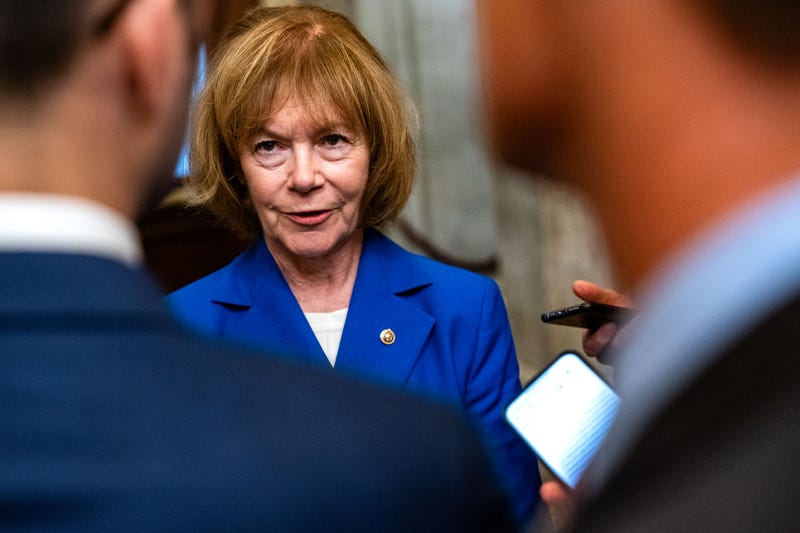
U.S. Senator Tina Smith (DFL- Minnesota) alongside 34 members in the House of Representatives are unveiling new legislation that would reimagine housing in America.
The new social housing proposal, called The Homes Act, would cap rent at 25% of tenants' incomes, and offer homeowners more affordable mortgages.
Smith says its time to put an end to discriminatory practices within the industry.
"Minnesota and around the country, investors with deep pockets started snatching up starter homes with all cash offers, and families are being outbid by mysterious buyers," Smith explains. "Thousands of miles away, big corporate landlords, they're raising rents and they're ignoring tenant calls to fix the leaks and take care of the pests and our constituents are paying the price."
The bill also proposes $30 billion in annual funding for a housing development authority. The bill would also establish a national Housing Development Authority to acquire affordable single and multi-family housing with robust tenant protections.
Smith says the bill lays out a new way to tackle the housing shortage across the country.
"Instead of treating real estate as a commodity in the speculative market, we would underwrite the construction of millions of new homes so that they can remain affordable for the long term," Senator Smith said.
A new report from Zillow shows Minnesota is losing 2,000 affordable rental units every year, and that Minneapolis is one of the cities hardest hit by the housing crisis.
Smith is the Chair of the Senate Housing, Transportation and Community Development Subcommittee, and was joined in the proposal by Rep. Alexandria Ocasio-Cortez (D-NY).
“Every day, we see families grappling with the harsh reality of the housing crisis—skyrocketing rents, evictions, and homelessness—while big banks and Wall Street prioritize profit over people. The Homes Act is our bold response to this crisis, investing $300 billion over the next decade to ensure everyone can access an affordable home,” said Rep Ocasio-Cortez.
The bill would:
Establish a national Housing Development Authority to acquire and develop real estate to create and maintain a stock of permanent, sustainable, affordable housing, including single- and multi-family housing, with robust tenant protections.
Empower local communities to address their specific housing needs by financing real estate acquisition or conveying property to public housing authorities, mission-driven nonprofits, tenant- or resident-owned cooperatives, state or local governments, and community land trusts.
Require the housing development authority to maintain portfolio-wide affordability by setting aside 40% of units for extremely-low income households and 30% of units for low-income households.
Cap rents for units financed under the Act at 25% of a household’s adjusted gross income and cannot increase more than 3% per year.
Support homeownership by allowing residents to purchase homes under shared equity models and providing relief to mortgage borrowers at risk of foreclosure due to market instability or economic distress.
Provide workers with strong labor protections building this new housing.
Provide tenants with opportunities to come together to purchase their buildings prior to large, for-profit developers buying them.
Provide funding to rehabilitate and address the backlog of necessary improvements for public housing and repeal the Faircloth Amendment to allow new public housing.
Authorize $30 billion in annual appropriations, combined with a revolving loan fund to recoup and reinvest funds back into housing. Annual appropriations include a 5% minimum set aside for Tribal communities and a 10% minimum set aside for rural communities.
